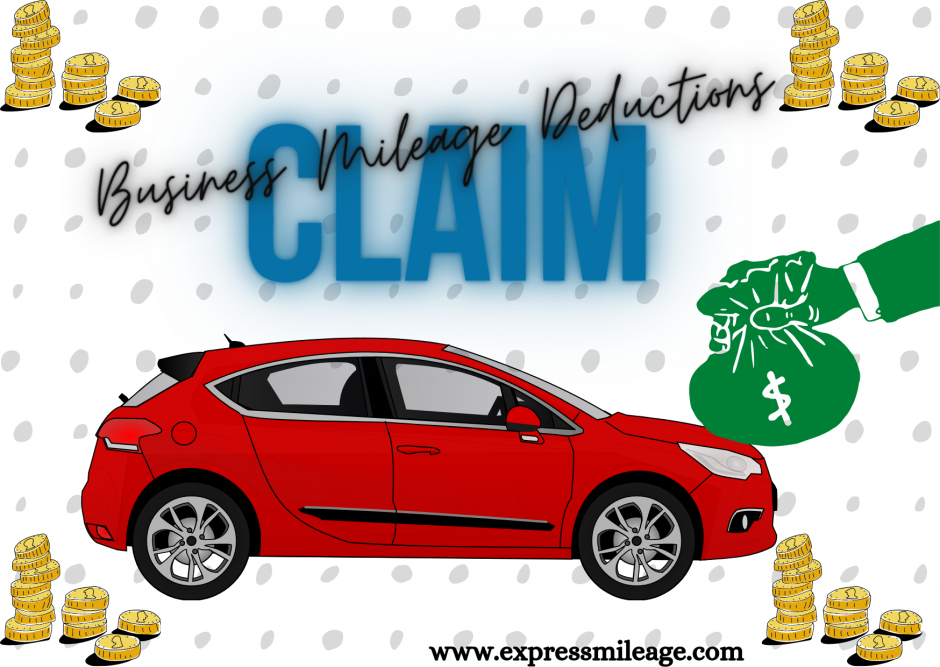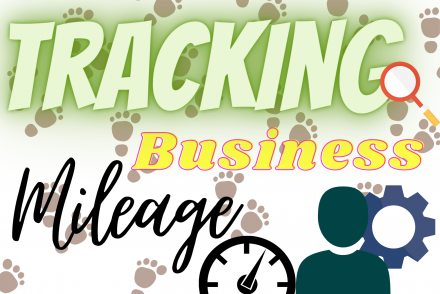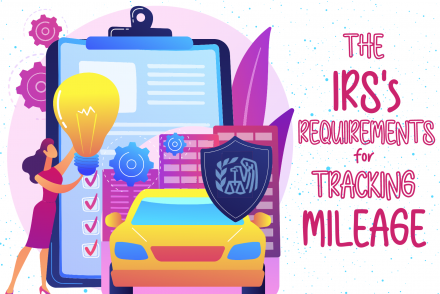Business owners and self-employed individuals are qualified to claim a business mileage deduction. The IRS only considers business trips purposes and you must know what those types of trips are considered. If you have personal purposes, the expenses must be divided. Using a mileage log maker will make your work more organized, secure your records and help you compute faster at the end of the year.
Here are some typical business purposes that are acceptable:
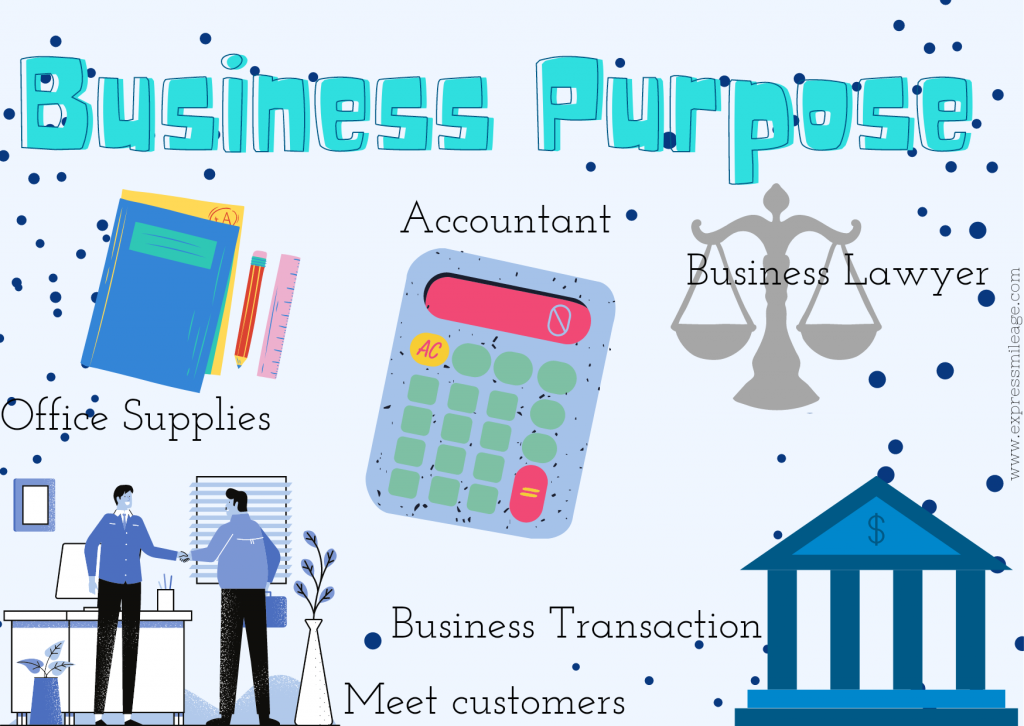
- Driving to meet customers – one of the major reason why you are running your business is having a client
- Driving to the bank for a business transaction – deposit money for the day or few days you earned or withdraw money needed for the office expenses and other payables
- Driving to meet with your accountant or business lawyer – your accountant checking the journal if all business transactions recorded are shown on your supporting documents or collaboration with your lawyer if you are doing the right thing on filing taxes
- Driving to the store to pick up office supplies or any related materials used for business – you run out of office supplies and you need to buy as not to bring hassle to your business operations
- Any other business-related errands
Personal purposes trips such as:
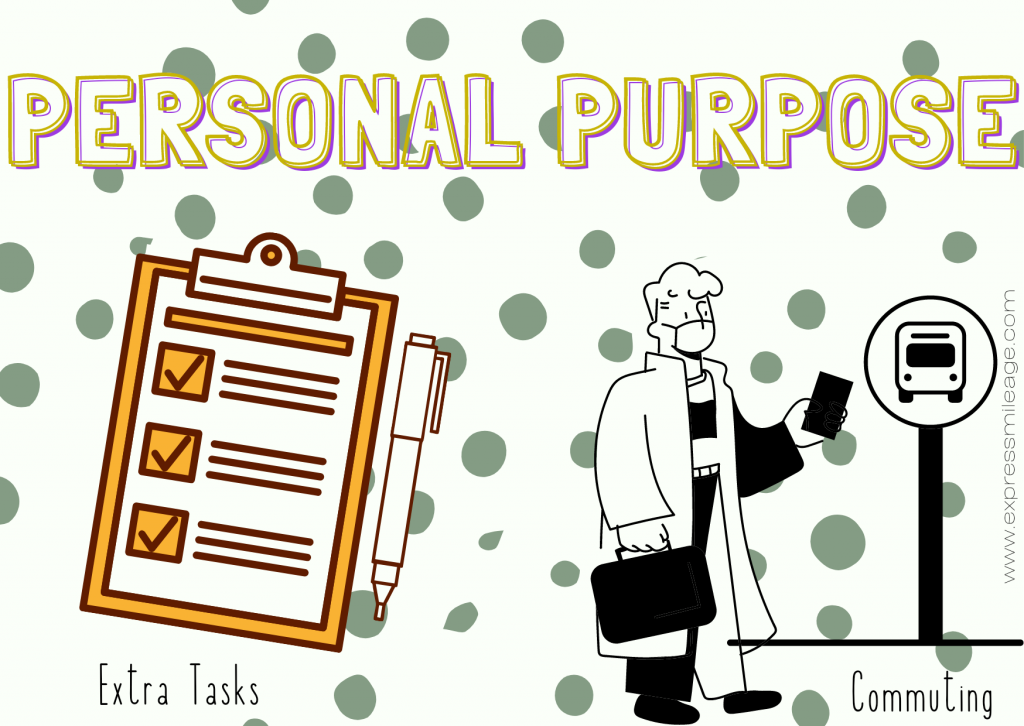
- You commuted to your office – driving from home to your business location because you had lunch at home, or need to pick up your kids from school
- Extra tasks when making business-related runs – grabbing a coffee before you meet the client or ordering take-out foods at Mcdonalds before you go to pick up office materials
- Any other personal-related errands
You have to keep your supporting documents as the main purpose of every trip is determined by looking at the facts and circumstances. An important factor to check is the amount of time you spent on personal activities compared to the amount of time you spent on business activities. Do not claim 100% on your business mileage deductions unless you use all 100% for business purposes. Always do the right thing or you could end up with an IRS audit.
Self-employed individuals can claim their business mileage deduction and can refer to Schedule C-form-1040, and on the tax form. Complete Part II, Line 9 on Schedule C (Car and truck expenses). You can also check IRS standard mileage rates.
Part IV Information on Your Vehicle. You can complete this part only if you are claiming car or truck expenses on line 9 and are not required to file Form 4562 for this business. See the instructions for line 13 to find out if you must file Form 4562.
You can also itemize your deductions on charity and medical mileage expenses. Yes, not only business owners or self-employed individuals who can take advantage of mileage tax deductions, but everyone else. You need to file a Schedule A and itemize the deductions if you want tax savings. Those who do itemize may be able to deduct mileage for either medical and dental care or charity work but keep in mind that supporting documents are needed for these claims to be valid. You can refer to the standard mileage rate table or the 2020 standard mileage rate.
- 17 cents per mile driven for medical or moving purposes
- 14 cents per mile driven in service of charitable organizations
Keep accurate records of your vehicle expenses to claim the business mileage deduction and to always win the tax audit. Saving yourself from tax audits will give you more time to focus on your business and financial goals.

